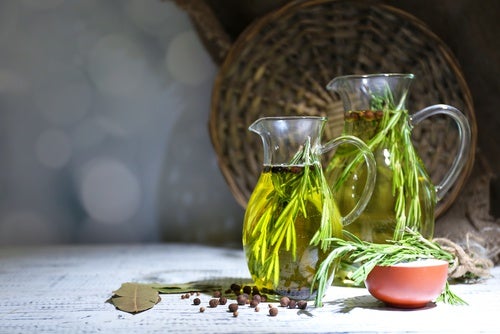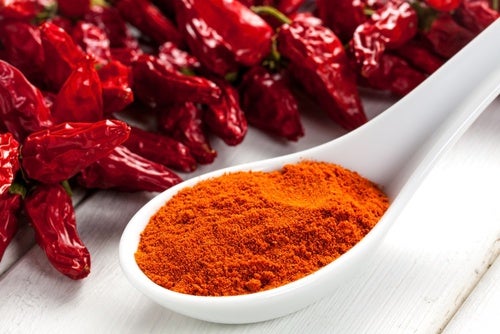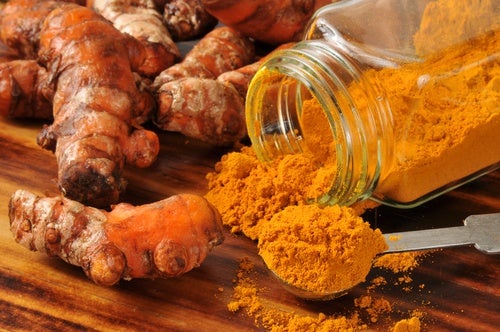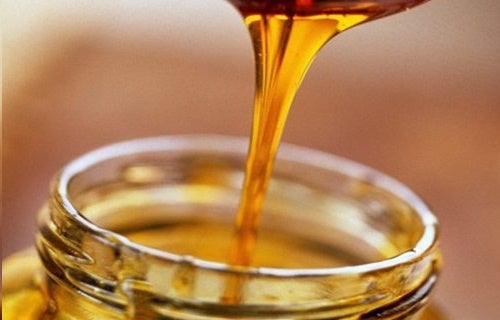
Antibiotics have been one of the best discoveries in medicine. Since penicillin was discovered in 1928, rapid action against infections led to believe many doctors and health professionals that this type of drug would become the solution to leave in the past illnesses and infections caused by viruses, bacteria and fungi. Although this type of antibiotics continue to be a critical aid in medicine, recent studies have determined that supply them in excess can be dangerous to your health and in fact, can create resistance in different bacteria, particularly in infants and children.
Oil of oregano

Wild oregano oil (Origanum vulgare), has a high antibiotic power which can help combat different types of micro-organisms. This type of oil is golden brown or dark yellow, with a strong spicy smell.
How to use it?
- Fungus in toenails or fingernails: Add a couple of teaspoons of oil of oregano in a tub with hot water and submerge your feet in 10 minutes. Another option is to mix one drop of this oil with a teaspoon of olive oil and apply it directly on the feet and nails.
- Parasites and infections: Mix one drop of this oil with a teaspoon of olive oil and put it under your tongue. Keep this position and rinse. Repeat 4 times a day.
- Sinusitis: Put a few drops of oil of oregano in a pot of water boiling and inhale the steam.
Cayenne pepper
This spicy condiment has also been used since ancient times for its high healing power and antibiotic. In fact, currently science is validating their use as natural antibiotic.How to use it?
- Cayenne pepper is being used in the treatment of vulvovaginitis, a common infection in women. Several studies have shown that this species exerts considerable in this condition antibiotic and antifungal effect. For use, dilute with an essential oil such as olive's. That Yes, for its spicy action, may cause burning sensation in the first contact with the skin.
Garlic

No doubt the natural antibiotic par excellence is the garlic. This natural ingredient not only kills the pathogens and bacteria, but also fungi and viruses, without harming beneficial intestinal flora.
How to use it?
- By their phytochemicals and healing sulfur components, is suitable for combating free radicals.
- It has antibacterial properties, antifungal, and antiviral qualities even.
- Garlic acts as a powerful antioxidant and protects against DNA damage.
- Garlic combat worms and parasites.
- Ideal for treating wounds, fungus on the nails and feet.
- It helps to prevent intestinal infections.
Turmeric

Turmeric is a spice widely used in traditional medicine thanks to its anti-inflammatory, antiseptic, antibiotic and analgesic.
How to use it?
- As an antibiotic, turmeric is used to prevent and combat the bacterium Helicobacter pylori, common in stress ulcers and other infections.
Honey bee

Raw honey is considered to be one of the best natural antibiotics that we can find. There is scientific evidence that suggests that the honey could help fight infections such as those caused to the intestine.
How to use it?
- This natural antibiotic is often used for treating and preventing skin infections.
- There are several investigations which claim that honey has a positive effect on the reduction of the cavity-causing the bacteria responsible for dental plaque.
- It is good to fight infections related to breastfeeding.
- Honey could combat 250 types of bacteria, including MRSA (Staphylococcus aureus resistant to Methicillin), MSSA (Staphylococcus aureus sensitive to Methicillin), VRE (vancomycin-resistant enterococci), Helicobacter Pylori (which can cause stomach ulcers).


0 comentarios:
Post a Comment